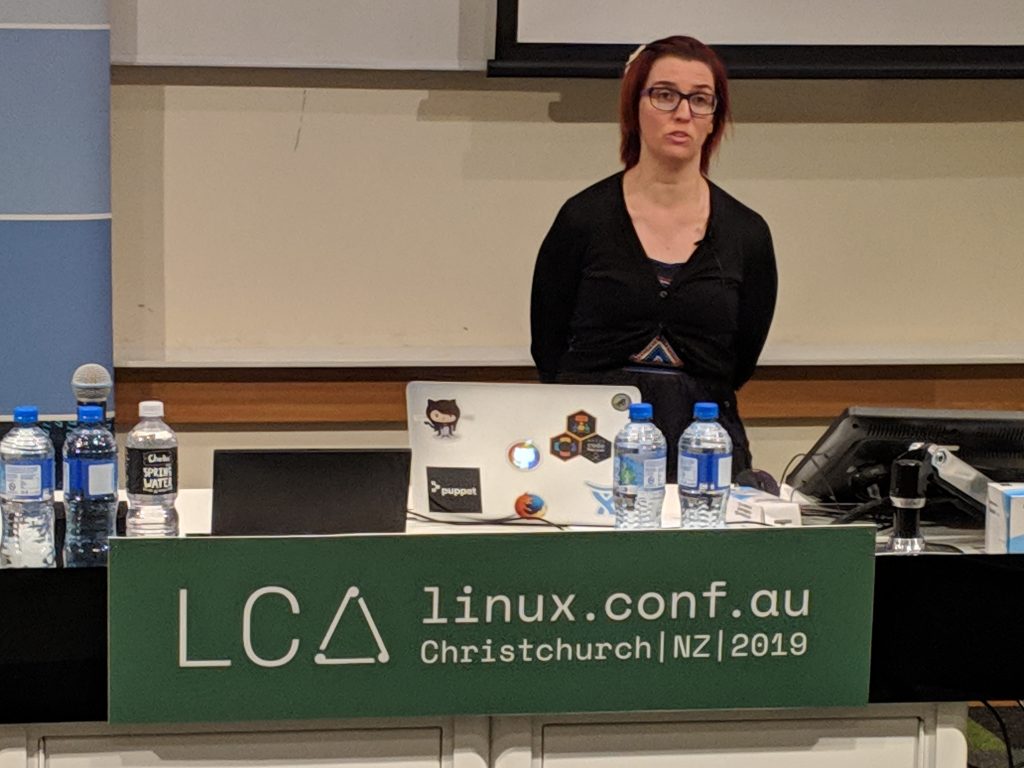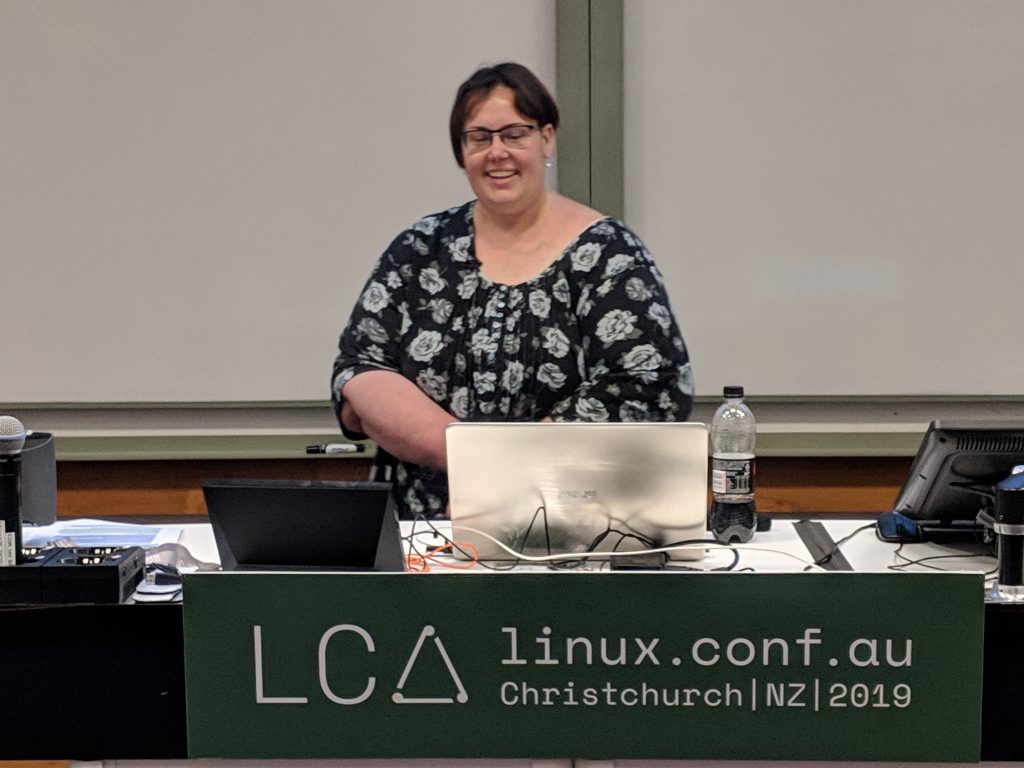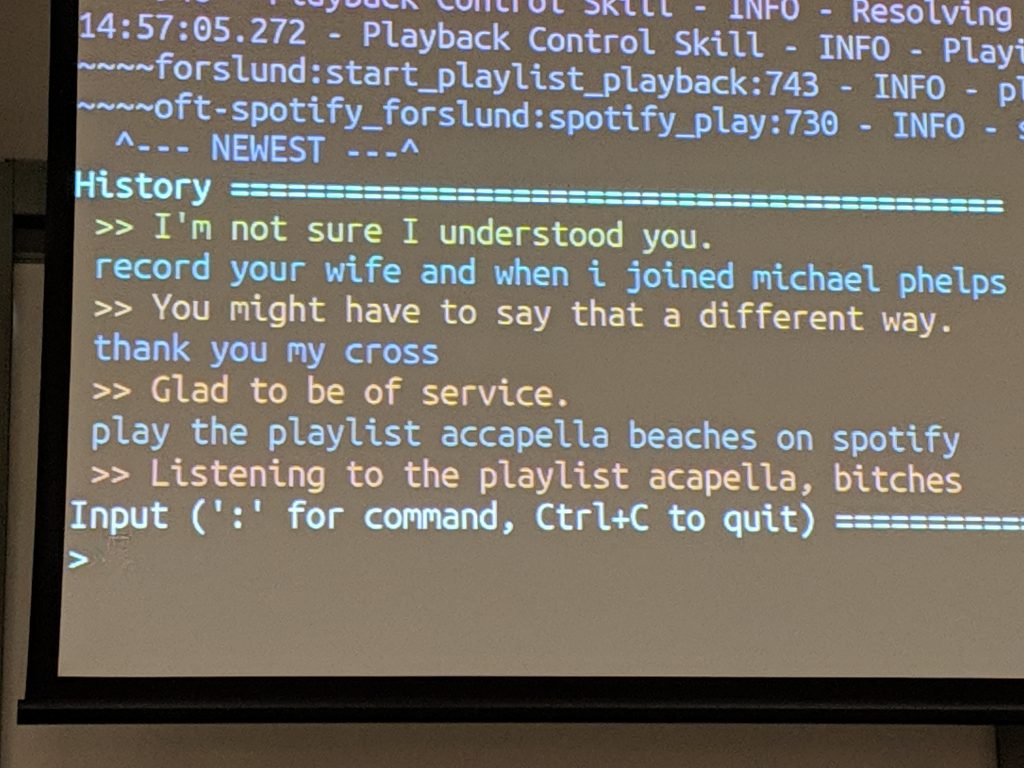Finding Your Tribe: Choosing open source Communities – Cintia Del Rio

- When started out she couldn’t find info on picked what project to work on. Crowdsourced some opinions from others
- You need to work out why you want to volenteer for a project.
- 3 types of code on Github
- Source Available
- Backed by companies (without open source as their business model)
- Core devs from company, roadmap controlled by them
- Limited influence from externals
- Most communication not on public channels
- You will be seen as guest/outsider
- On Person Band
- Single core maintainer, working in spare time
- Common even for very popular libraries and tools (lots of examples from node and java ecosystem)
- Few resource
- Conflicts might not be handled well
- Communities
- Communication Channells – forums, mailing list, chat
- Multiple core devs
- Github org
- Code of conduct
- Source Available
- Some things to check beforehand
- Is it dead yet?
- Communication channels, Commits, issues, pull requests – how old, recent updates
- How aggressive is the community?
- Look at how a clueless user is handled
- Declined pull requests. HOW did they handle the decline
- ” Is the mailing list/icr/slack, is it a trash fire? ”
- “Can you please rule” – add “Can you please” in front of a comment and does it sound nice or still mean/sarcasm?
- Is non-coding work valued
- Communities with translations?
- Look at photos from the conferences
- Grammar mistakes and typos – how are the handled?
- Newbie tags and Getting started docs
- Cool languages tend to attract toxic people
- Look for Jerks in leadership
- Ask around
- Is it dead yet?
- Does it spark joy? – If not let it go.
Intro to the Open Source Voice Stack By Kathy Reid

- In the past we have taught spreadsheets etc. We need to teach the latest thing and that is now voice interfaces
- Worked for Mycroft, mainly using that for demo
- Voice stack
- Wake Word
- Speech 2 Text (utterance)
- Action ( command )
- Text to Speech (dialogue )
- Request response life-Cycle
- Wake word
- Intent parser over utterance
- When Kathy just started she was first woman and first Australian so few/no samples in database and had problems understanding her.

- Text to Speech
- Needs to have a well speaker speaking for 40-60 hours
- Mimic Recording Studio – List of Phrases that people need to speak to train the output